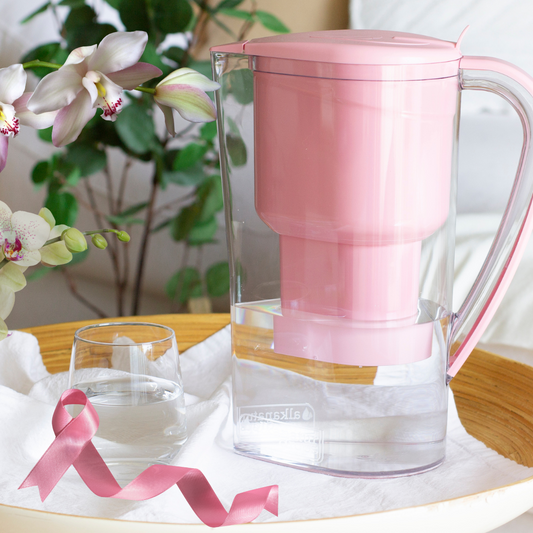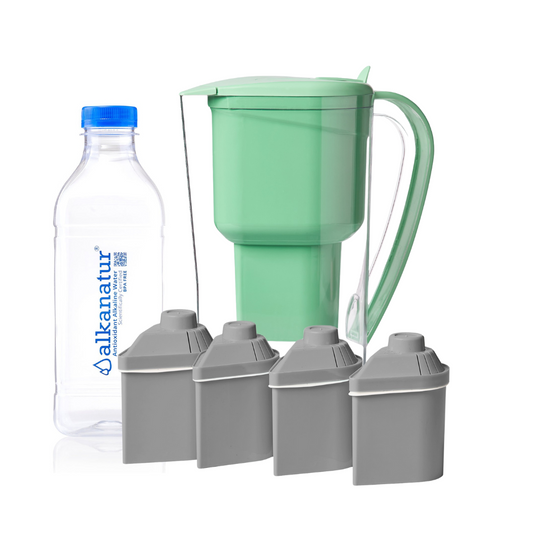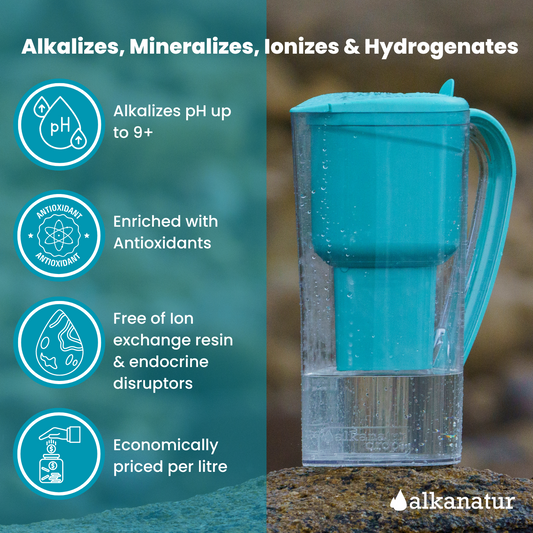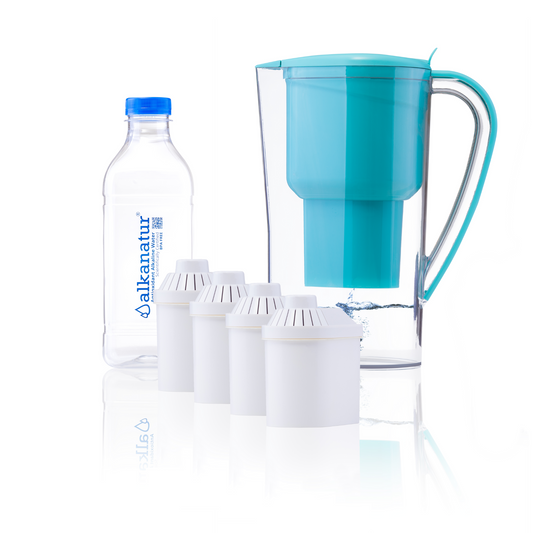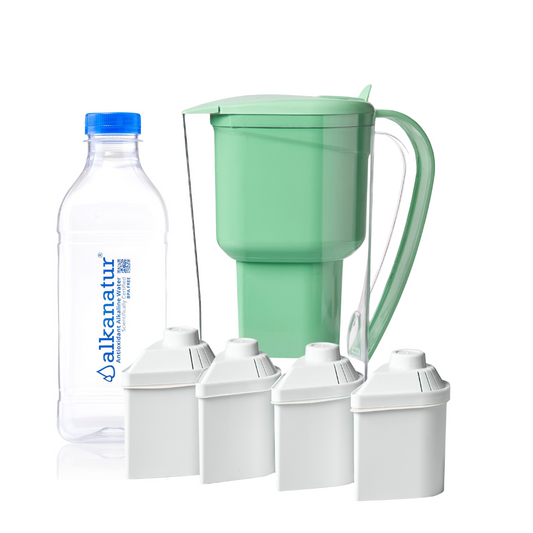High quality, finely pored coconut carbon charcoal is a cornerstone of our water filters at Alkanatur. Along with patented bioceramics and magnesium, charcoal is one of the key components. Coconut carbon charcoal offers a natural and effective method of water purification. As it is derived from coconut shells (which are leftover from coconut oil and meat extraction) it is a sustainable and environmentally friendly choice.
What is Coconut Carbon Charcoal?
Coconut carbon charcoal is a highly porous material created by heating coconut shells in the absence of oxygen. This process results in a material with an extensive surface area, making it ideal for trapping impurities from water. Our filter's pore size of 2 nanometers is possible because of this unique medium.
Key Benefits in Water Purification
- Superior Adsorption: The vast surface area of coconut carbon charcoal allows it to effectively adsorb contaminants such as chlorine, heavy metals, organic compounds, as well as unpleasant tastes and odors.
- Natural & Sustainable: As a byproduct of the coconut industry, coconut carbon charcoal is a renewable and sustainable resource.
- Effective Against a Wide Range of Contaminants: Coconut carbon charcoal is capable of removing a variety of impurities, ensuring clean and safe drinking water.
Occasional Residue in Water Pitchers
While coconut carbon charcoal is highly effective, it may occasionally leave a slight residue. This residue is harmless and can be easily removed through rinsing. When initially setting up your pitcher, be sure to follow the instructions. First, submerge the filter underwater for 15 minutes, until bubbles stop coming to the surface. Then, be sure to fill and empty the pitcher 3x until the water runs clear, and the black particulate matter (carbon) has dissipated. You can use the initial pitchers of water to nourish your houseplants!
Alkanatur water filters are designed to minimize residue and provide clean, refreshing drinking water. If you notice any residue during use, simply rinse the pitcher (be sure to avoid scrubbing to prevent inadvertent micro scratches on the plastic). Also, ensure you follow the timelines for filter replacement - every 3-4 months, depending on family size and use.
Alkanatur Alkaline Water Filter Pitcher with Magnesium & Antioxidants – Alkanatur North America



